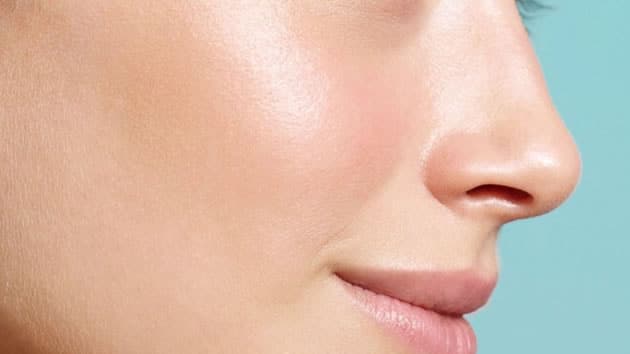
Collagen is one of the most abundant proteins in the human body. Your joints, the lining of your digestive system and your skin, hair and nails all use collagen. The body creates the bulk of the collagen it needs, but as we age it gets less effective at this process.
The signs that our bodies are getting worse at collagen creation are wrinkles, weak nails, stiff and painful joints and an overall loss of youthful clarity in skin tone. We look at these things as inevitable signs of ageing and maybe treat them topically with creams. This doesn’t need to be the case, though – consumption of high-quality marine collagen can markedly decrease visible signs of ageing.
Thankfully the beneficial effects of marine collagen have been extensively researched. We will examine the most profound, scientifically backed benefits of consuming marine collagen.
Collagen’s anti-aging power
The protein collagen makes up a large part of your skin – everything from hair to the epidermis and most importantly, the dermis itself. Your dermis is the section of skin between your outer and sub-dermal layers. It’s responsible for giving your skin elasticity and, for lack of a more appropriate word, plumpness.
When there’s insufficient collagen to keep the dermis supplied with elastin and fibrillin, your skin loses firmness and tone. What’s worse is that since collagen is the major component of scar tissue, inadequate collagen will make skin damage far more visible.
Let’s take a look at the various interactions between collagen, your skin, nails and hair, and what the actual research says.
Marine collagen peptides reduce skin dryness
Two main components of wrinkle formation are repeated creasing – think crow’s feet or smile lines – and the reduction in skin hydration. A study published in Skin Pharmacology and Physiology determined that supplementation of 2.5 grams/day of marine collagen peptides provided a statistically significant reduction in visible wrinkles.
What’s more, the study also showed a near 60% increase in collagen precursors (which the body uses to create collagen on its own). Finally, an 18% increase in elastin was measured for up to 8 weeks after the treatment protocol ended. It was also determined that this treatment increased the dermal layer’s ability to use collagen on its own.
Collagen and vitamin A reduce wrinkle depth
Once in place, wrinkles are difficult to get rid of outside of actual medical procedure. They can be minimised, however, with the ingestion of collagen and vitamin A. Research from Minerva labs of London showed that tonic of collagen and vitamin A significantly reduced wrinkle depth.
Visible results were apparent after 6 weeks, and the trial ran for 12 weeks total. The effect on wrinkle depth stopped improving at 9 weeks but maintained the gains it provided. At the same time, firmness and elasticity increase significantly from week 3 through 12.
Supplementing marine collagen improves sun-damaged skin
Prolonged sun exposure damages skin cells, causing them to rapidly divide to replace dead skin. This causes skin aging, wrinkles and dryness and as we age, collagen production cannot keep up with a youth spent in the sun.
A study comprised of women aged 40-60 with sun damaged skin were given a placebo or 500mg of marine collagen a day for 90 days. The results indicated a significant increase in skin elasticity, dermal thickness and reduction of visible damage.
A similar study on mice demonstrated a clear protective effect on the skin from UV rays. This study also compared collagen from land animals to marine collagen and marine collagen provided better protection but also increased skin thickness and moisture.
Anti-ageing effects of collagen supplementation
Low moisture retention, loss of elasticity and firmness and repeated sun damage all produce wrinkles and the general visual effect of ageing. While collagen is useful for each of these factors individually, supplementation has an anti-ageing effect that is greater than the sum of the individual improvements listed above.
A study conducted in Russia showed extremely favourable results when supplementing 2.5-5 grams of marine collagen a day, improving all factors of visible skin ageing. This study also indicated that collagen, while effective on its own, does best when appropriately combined with vitamins, fatty acids and plant-derived products. Make sure any treatments or supplements you use are well-formulated in this regard.
Collagen plays a critical role in wound healing
Scars dramatically affect the way your skin looks and feels, and the bulk of scar tissue is made from collagen. As we age, our skin’s ability to replace and keep up with scar tissue sites decreases as it gets harder to synthesise collagen from pre-collagen proteins.
Research published in The Open Nutraceuticals Journal in 2015 showed that regular consumption of hydrolysed collagen had a profound effect on skin health and its ability to repair itself.
Another study conducted in 2011 showed that marine collagen – when taken as an oral supplement – had a statistically significant effect on wound healing. In addition, the collagen-treated group had nearly double the strength and elasticity in the repaired tissue as the control group.
These findings are exceptionally useful for older adults, for whom a small wound exposes them to pathogens that are likely more dangerous for their age group. It’s also a factor in the appearance of scars after wounds have healed. In particular, marine collagen seems to have a beneficial effect on burn wounds and subsequent scarring.
Wrinkle reduction through topical collagen
Collagen is included in many skin creams on the basis that it both improves skin health and also retains moisture near the skin’s surface. Based on a study from 2017, low molecular weight collagen cultivated from marine sources penetrates the skin better than collagen with a higher weight. This puts the collagen directly at the damaged or wrinkled site, which in the study proved to accelerate the beneficial effects.
As with other studies, it is apparent that simply having more collagen available signals skin cells to begin creating more on their own through available proteins in the body. Additionally, supplemented collagen provides the precursors to collagen production which also improves the body’s ability to synthesise more efficiently on its own.
Marine collagen improves skin health
There’s no question that collagen is a useful supplement for a variety of reasons related to skin health. Collagen improves the rate that skin heals, decreases the visibility of scar tissue and improves the marks representative of ageing.
Reduction in wrinkles and elasticity do not need to be superficially treated with creams or makeup when marine collagen supplements provide actual benefits that are scientifically measurable.
Want Tasty Marine Collagen Recipes?
- Glowing Skin Smoothie Breakfast Bowl
- Turmeric & Collagen Keto Smoothie
- Green Cleansing Collagen Smoothie
Click Here for Marine Collagen






